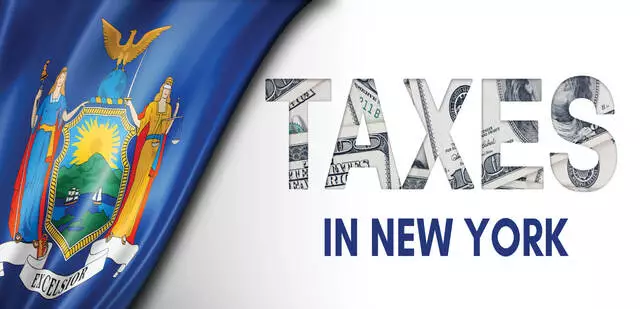
Welcome back. I write today from my office in Buffalo, where I await the debut of “Snowpocalypse,” which is forecast to arrive in the next ten or so hours. Or maybe this one is “Snowvember 2: Return of the Lake Effect.” In any case, we are supposed to receive epic amounts of snow over the next few days: so much snow that the NFL is discussing moving Sunday’s Browns at Bills game to Detroit. Not impressed? It’s enough snow that the Weather Channel has flown Jim Cantore in for the weekend.
Yeah, you know your city (and I love mine) has hit the epitome of something when the news items that get the most column inches in your daily newspaper are a quarterback’s elbow and a TV meteorologist visiting from Atlanta.
There are three ALJ Determinations to report on this week. One, Glynn, is noteworthy.
ALJ Determinations
Matter of Patterson, Judge Russo, November 10, 2022; Div’s Rep. Michael Hall, Esq.; Pet’s Rep. pro se; Articles 28 and 29. The Judge determined that Petitioner, James Patterson (but apparently not THE James Patterson), was a person responsible for the sales tax debts of Gennies Soul Food, LLC, as a member of that LLC. Petitioner’s defense was that he wasn’t a member of the LLC and he had been a victim of an identity-theft perpetrated by an ex-girlfriend. And I get it, after one of my ex’s dumped me I noticed that my “Night at the Opera” and “Venus and Mars” albums had vanished. Also missing was the lucky feather I found on the ground at the April 7, 1978, Grateful Dead concert in Hollywood, Florida. And now, after re-reading the last two sentences, I realize there may have been moments in my awesomely-spent youth (no “misspent youth” for me!) during which my clarity of thought was not at the same level it is today.
Judge Russo found that Petitioner’s testimony lacked credibility. He was vague about when he supposedly dated said ex, and his signature on his driver’s license was similar to a signature on certain documents used when the business was set-up. Also, he admitted to having dissolved the LLC. Would he have done that if he were not a member? The Judge thought “probably not.” So Judge Russo found that Petitioner had not satisfied his burden of proving he was not a member of the LLC. As an LLC member, he had per se liability for the sales taxes owed by the LLC.
Matter of Glynn, Judge Gardiner, November 10, 2022; Div’s Rep. Colleen M. McMahon, Esq.; Pet’s Rep. Christopher LaBarbiera, CPA; Article 22. The Judge granted summary determination in favor of the Division after determining that Petitioner had spent more than 183 days in New York in 2017 and that the apartment Petitioner rented on an annual basis from June 28, 2016, to June 30, 2017, and then from July 1, 2017, to June 30, 2018, constituted a “permanent place of abode” in New York for 2017. Here is what appears to me to be the entirety of the facts upon which the Judge determined that the apartment was a permanent place of abode: “A copy of the lease reflects a lease term of one year that began on June 28, 2016, to June 30, 2017. Petitioner renewed his lease for one year, beginning July 1, 2017, through June 30, 2018. Under the lease, he was the sole occupant of the apartment. The apartment has water, sewer and heat that is included in the amount of rent paid monthly. Petitioner was responsible for paying for electricity, used to operate all appliances within the apartment, as well as costs for phone and cable. Petitioner was responsible for maintaining the apartment throughout the lease period.” And “petitioner conceded that his apartment was used by him in excess of 183 days during the year 2017. His apartment is located in close proximity to his work location on East 11th Street. Petitioner had a legal right to occupy the apartment as his residence and he exercised that right by securing an initial one-year lease and then opted to renew it for another one-year term.”
Summary determination is only supposed to be available when all the material factual issues are settled. In Matter of Obus v New York State Tax Appeals Trib., 206 AD3d 1511 (3d Dept 2022), a case cited by the Judge, the Appellate Division, Third Department ruled that whether an abode constituted a permanent place of abode depended, in part, on whether the taxpayer maintained a residential interest in the property: “Significantly, there must be a showing that the taxpayer has a residential interest in the property, which is a fact-intensive inquiry.” And, “[t]o properly determine the taxpayers’ residential interest, it is imperative to consider a variety of factors, including the nature and duration of the use [citations omitted], which inherently involves a subjective analysis of the taxpayers’ use.”
Inasmuch as the determination has no analysis—none whatsoever—of how Petitioner used the New York apartment, it seems to me that the issue of whether it constituted a permanent place of abode is not resolved. Was the apartment essentially a hotel substitute? Did he sleep there? Did he use the closets or did he live out of a suitcase for two years? Was there a kitchen that Petitioner used? Did he entertain there? Bathe there? I understand that the petitioner has the burden of proof, but areas of uncertainty are supposed to be construed in favor of the party who did not move for summary determination (here, Petitioner).
I am not saying that the apartment wasn’t a permanent place of abode for this taxpayer. I am simply saying that, in my opinion, the answer to the question is not at the level of certainty required to support a summary determination without a hearing.
As a reminder, even though I do not always say it, I have a great deal of respect for the ALJs at the DTA and the great work they do, even though I sometimes suggest in TiNY that I might have decided differently.
Matter of Babu Wine and Liquor, Inc., Judge Behuniak; November 10, 2022; Div’s Rep. Brian Evans, Esq.; Pet’s Rep. pro se; Article 28 and 29. Typical timey. Typical result. The Notice was sent to Petitioner and its representative at their last known addresses on January 27, 2020. The petition wasn’t filed until November 30, 2020, way more than 90 days after the notice was mailed. Game over.
Happy Thanksgiving.

